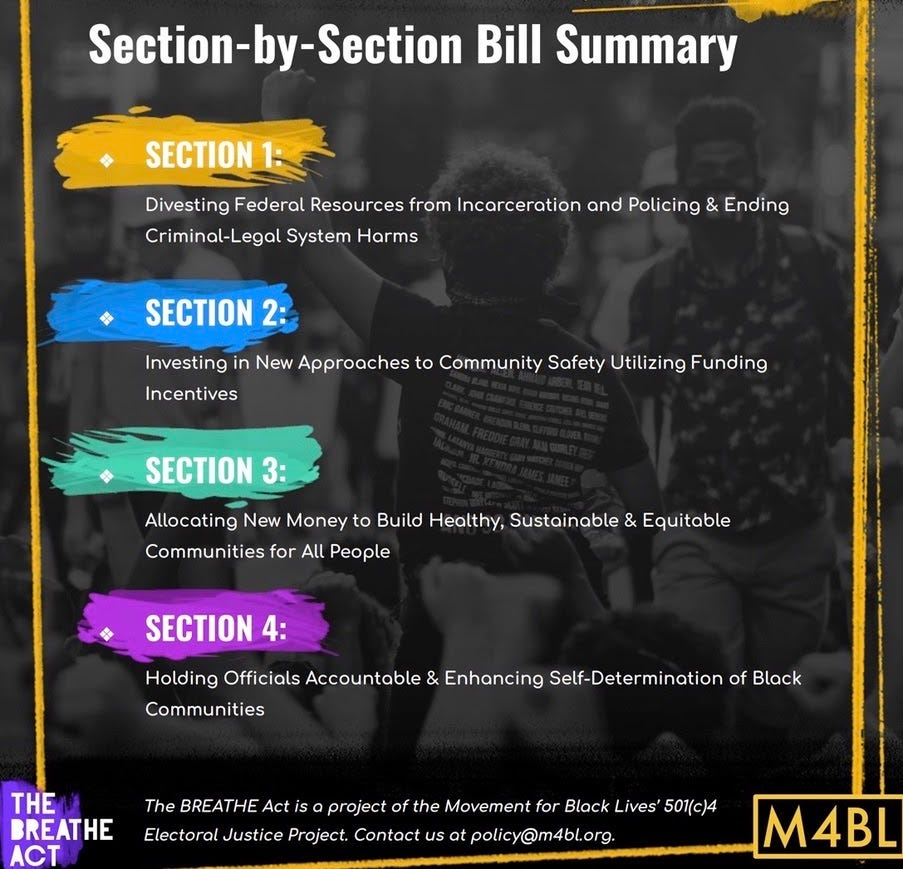The BREATHE Act and US foreign policy
Speaking Security Newsletter | Advisory Note for Organizers and Candidates, n°44 | 17 September 2020
Situation
Representatives Rashida Tlaib and Ayanna Pressley haven’t formally introduced the BREATHE Act yet, but announced that they were sponsoring it in early July. A summary (via Movement for Black Lives):

Why it’s great for foreign policy
1. The bill’s authors reconcile both the domestic and foreign diodes of militarism’s circular flow, which is both practical for M4BL’s purposes and what leftists in foreign policy should be doing anyways
Here’s what I mean, from Section 1 of the bill:

These recommendations demonstrate a keen awareness that foreign policy both starts and ends at home. The 1033 program facilitates “bringing the war home” (as does the DEA and CBP in their own ways), or the back half (from the US’ perspective) of militarism’s global path. On the front end, they propose reducing military spending (which, at current levels, perpetuates war/entrenches imperialism, and gives life to the 1033 program).
2. Safety + empowerment
The BREATHE Act redefines what security is and, to that end, proposes divesting from violent structures/institutions and investing in helpful ones:

So the bill not only offers safety by dismantling harmful systems but also empowerment by building productive ones in their stead. And, given the spirit of the BREATHE Act, I have to imagine that their recommendation above to “dramatically reduce” the DOD budget is a scaled-up version of what they’re after locally to fix the police vs. non-police spending disparity. Or, in other words, a version of defense conversion implemented on a local and national level (with additional public investments).
Let’s say that upon introducing the BREATHE Act, Reps. Tlaib and Pressley recommend a $350 billion conversion from military to social spending. Here’s a look at the additional jobs this sort of conversion would produce over investing in defense:
...in green energy: +1,015,000
...in healthcare: +2,590,000
[*math: defense produces 6.9 jobs/$1m public investment; green energy, 9.8; healthcare, 14.3]
Not sure how this set of trade-offs plays out locally w/r/t police budgets, but I’d imagine a similar disparity exists there, too.
Thanks for your time,
Stephen (@stephensemler; stephen@securityreform.org)
Find this note useful? Please consider becoming a supporter of SPRI. Unlike establishment think tanks, we rely exclusively on small donations.

